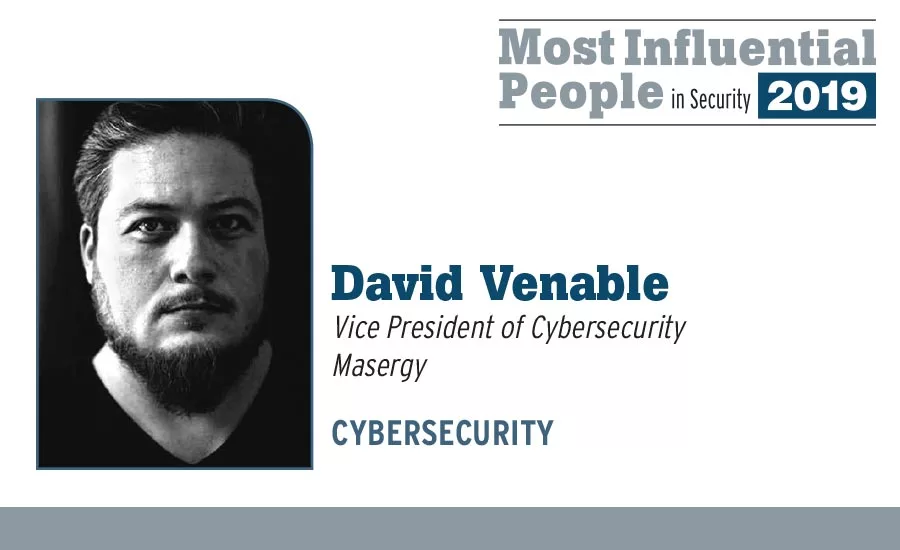Security's Most Influential People in Security 2019 - David Venable
Vice President of Cybersecurity, Masergy

David Venable is the vice president of cybersecurity at Masergy, a networking services company in Plano, Texas. At Masergy, Venable has transformed the internal information security program; founded and heads up both the company’s Risk Committee and Security Steering Committee; drove the company to attain a number of industry security compliance certifications; and has created, managed and maintained numerous enterprise-wide programs that protect the company and its global network infrastructure.
Additionally, Venable founded and leads the company’s “Hacking Club,” which is open to any employee wanting to learn more about offensive and defensive information security, social engineering and other security-related topics.
Venable is a former intelligence professional with the U.S. National Security Agency, with extensive experience in computer network exploitation, information operations, digital network intelligence and cryptography. He has also taught while serving as adjunct faculty at the National Cryptologic School. Venable has developed and managed several U.S. national-level projects in support of global anti-terrorism operations, in addition to providing security advisory services to Global 500 companies.
Venable is a Certified Information Systems Security Professional (CISSP) who has received multiple national and international awards, including the National Security Agency (NSA) Star Award and a New Security Leader for 2015 by the Warsaw Security Forum.
Venable has authored articles for numerous academic and industry media outlets on evolving cybersecurity threats.
Venable serves on the Cyber Security Advisory Council of Southern Methodist University, where he is also an instructor on cybersecurity.
To date, Venable has mentored 64 mid-career, high-potential leaders. “I’m deeply honored to have served as a mentor for the New Security Leaders program,” Venable says. “I’ve had the opportunity to watch the careers of many security professionals blossom as a result of this program, and I’ve learned things from each of the participants and the other mentors that I will take with me through the rest of my career.”
His career advice is to “Get a wide variety of experience early in your career. Be sure to work on different types of projects, with different people and in different environments. Each organization or company typically has its own way of doing things, and it is always good to learn these ways, but also to experience other perspectives from a variety of vantage points. This diversity of perceptions will provide more insight later in your career, and enable you to understand, empathize and help the people you will lead in the future.”
Looking for a reprint of this article?
From high-res PDFs to custom plaques, order your copy today!






